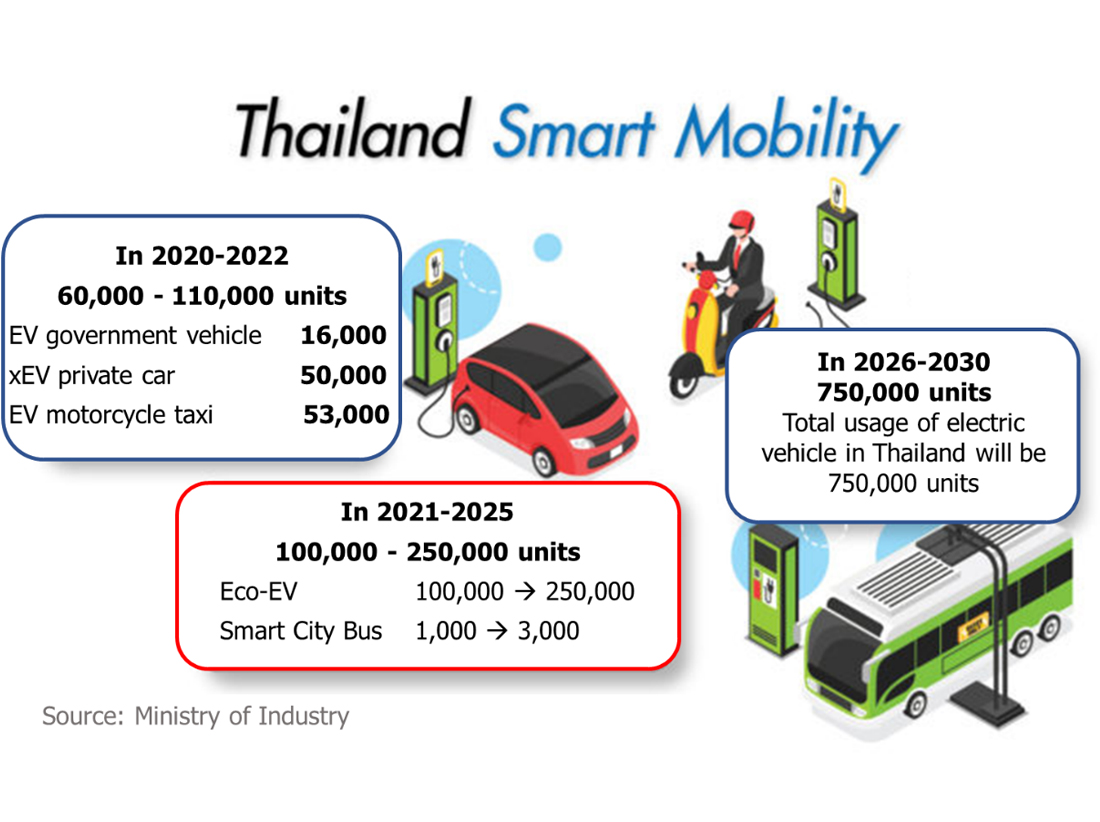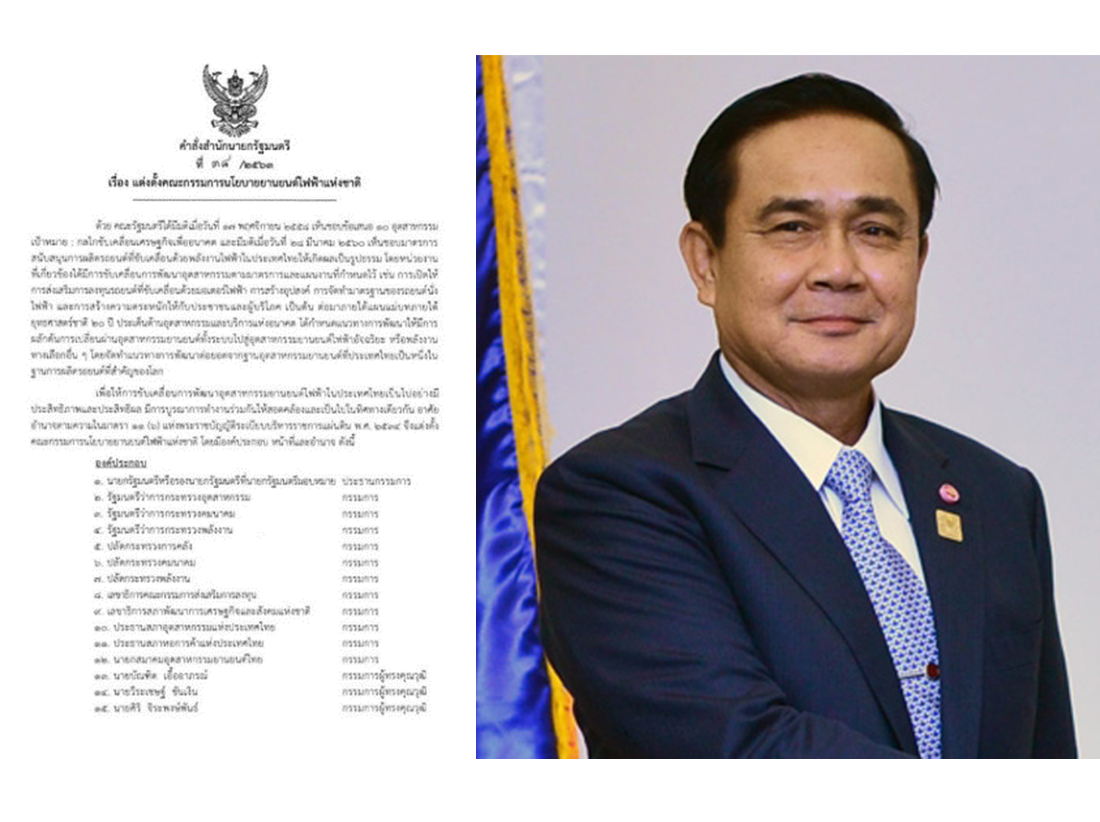The automotive industry has been a significant role to global economic growth for decades. Meanwhile, the global is now threatened by an environmental crisis such as greenhouse effect which increasing the climate and world warming and air pollution from PM 2.5. The one relevant factor of crisis is from the motor vehicles. Many countries realized about the problem and try to find the way mitigate the environmental effects by using electric vehicles.
Thailand is as the largest automotive producer in southeast Asian and ranked 11stin the world. In order to be aligned trade competition with environmental protection,Thailand had announced the electric vehicle policy to promote EV production, R&D and usage in Thailand in 2017.The government,Board of Investment in Thailand, kicked offEV privileges for car and auto part makers covering all EVs types (HEV, PHEV and BEV). However, the promotionscheme had not strong incentive to attract the investors.
On 7 February 2020, Prime Minister General Prayuth Chan-ocha signed to appoint the National Electrical Vehicle Policy Committee for pushing automotive industry development in Thailand to become electric vehicle hub of Asian efficiency. The committee which consists of the government and private sector is working out strategies for development the automotive in line of goal and increasing the investor confidence. According to roadmap of Thailand Smart Mobility 2030, the country will produce electric vehicles including car, motorcycle and public bus at least 750,000 units by 2030 (xEV 30% of the ICE car 2.5 million units) which divided by 3 phases following.
Phase 1 starts in 2020-2022, the target is to have electric vehicle 60,000 – 110,000 units consist of government vehicle, public bus,private car and motorcycle taxi.Phase 2focuses on ECO EV and Smart City Bus 250,000 units in 2021-2025. Phase 3total usage of electric vehicle in Thailand will be 750,000 units by 2026-2030.

Electric motorcycle scheme with a project of electric motorcycle taxi, the government will subsidy a project 2.9 million THB for electric motorcycle taxi 53,000 units by 3 years (Y2020 -2022). The privileges for a taxi motorcycle driver are 15,000 THB for exchanging old one to new EV motorcycle, subsidy for loan interest 10,000 THB/unit and subsidy for battery exchange 30,000 THB/unit. The project will be launched by this June 2020 for 500 units.
Technology transformation from internal combustion engine(ICE)to electric motor is a big changing to automotive industry especially manufacturing, testing, infrastructure including the regulationsand relevant standards.The establishment of National ElectricVehicle Policy Committee may be a new beginning for the transformation of Thailand automotive industry into the electric vehicle industry soon and will be the important role in creating economic value in future.
